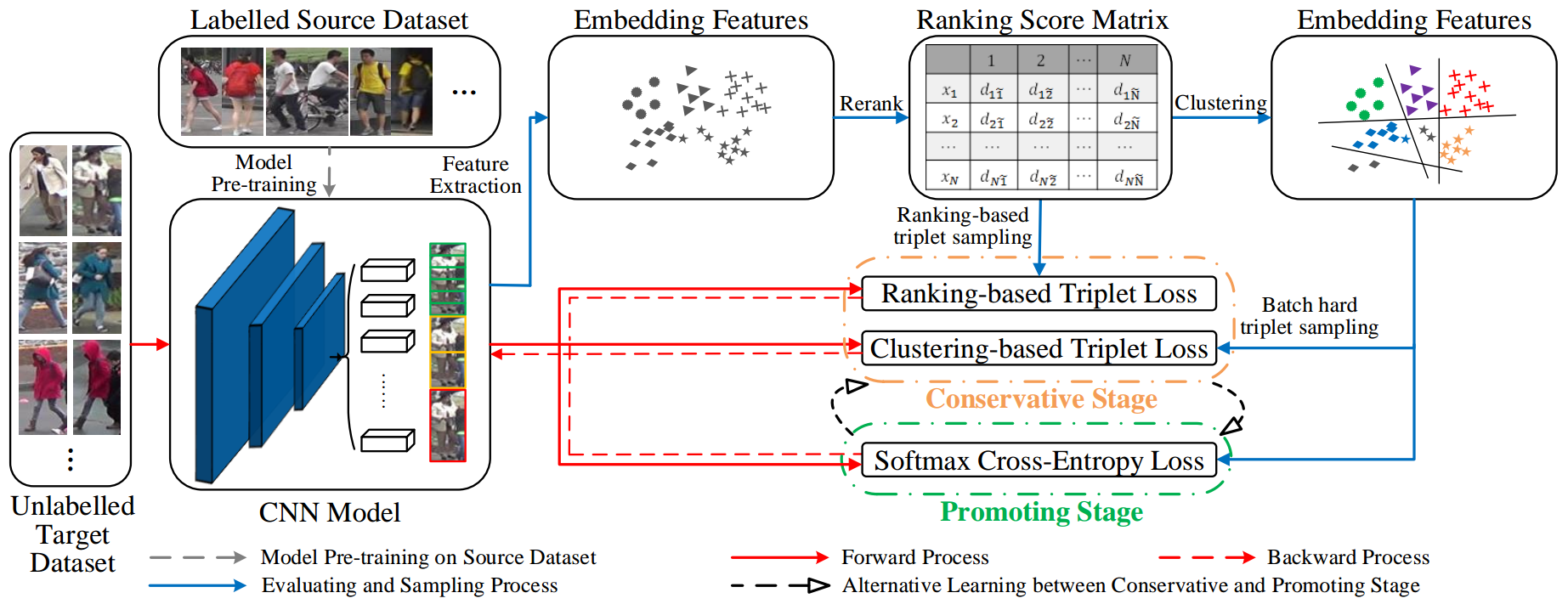Self-training with progressive augmentation for unsupervised cross-domain person re-identification
Person re-identification (Re-ID) has achieved great improvement with deep learning and a large amount of labelled training data. However, it remains a challenging task for adapting a model trained in a source domain of labelled data to a target domain of only unlabelled data available. In this work, we develop a self-training method with progressive augmentation framework (PAST) to promote the model performance progressively on the target dataset. Specially, our PAST framework consists of two stages, namely, conservative stage and promoting stage. The conservative stage captures the local structure of target-domain data points with triplet-based loss functions, leading to improved feature representations. The promoting stage continuously optimizes the network by appending a changeable classification layer to the last layer of the model, enabling the use of global information about the data distribution. Importantly, we propose a new self-training strategy that progressively augments the model capability by adopting conservative and promoting stages alternately. Furthermore, to improve the reliability of selected triplet samples, we introduce a ranking-based triplet loss in the conservative stage, which is a label-free objective function basing on the similarities between data pairs. Experiments demonstrate that the proposed method achieves state-of-the-art person Re-ID performance under the unsupervised cross-domain setting. Code is available at: https://tinyurl.com/PASTReID
PDF Abstract ICCV 2019 PDF ICCV 2019 Abstract





 ImageNet
ImageNet
 Market-1501
Market-1501
 CUHK03
CUHK03
